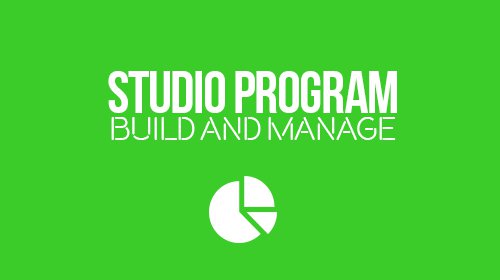Running a successful studio requires more than just talent and creativity—it demands efficient management and organization. Thankfully, with the power of Customer Relationship Management (CRM) systems, studio owners can streamline their operations and maximize their chances of success. In this article, we will explore the immense benefits of using a CRM for studio management, from simplifying invoicing and client management to boosting productivity and enhancing customer satisfaction. By harnessing the power of CRM, studio owners can unlock their full potential and achieve new levels of efficiency and success. So, let’s delve into the world of CRM and discover how it can transform studio management for the better.
Benefits of CRM for Studio Management
CRM (Customer Relationship Management) software has become an invaluable tool for efficient studio management. By harnessing the power of CRM, studios can streamline their operations and achieve greater success. In this section, we will explore the key benefits of using CRM for studio management.
Enhanced Client Management: A CRM system empowers studio managers to effectively handle client relationships. With a centralized database, all client information, including contact details, project history, and preferences, can be easily accessed and updated. This enables studios to provide personalized experiences, tailor their services, and deliver better customer satisfaction. Additionally, CRM software often includes communication features, such as email integration, allowing seamless interactions with clients and fostering stronger relationships.
Improved Invoicing and Financial Management: Studio management involves the handling of finances and invoicing, which can be time-consuming and prone to errors. CRM software simplifies this process by automating invoicing, payment tracking, and financial reporting. By integrating CRM with accounting software, studio managers can ensure accuracy in financial transactions, minimize manual work, and gain better visibility into their studio’s financial health. With streamlined invoicing and financial management, studios can focus more on creative projects and spend less time on administrative tasks.
Efficient Project Tracking and Collaboration: From video production to graphic design, studios typically work on multiple projects simultaneously. This demands effective project tracking and collaboration among team members. CRM software offers features like task management, project timelines, and document sharing, facilitating efficient project coordination. By centralizing project-related information, studio managers can easily assign tasks, monitor progress, and ensure timely project delivery. Such streamlined project management leads to increased productivity, seamless communication, and ultimately, better client satisfaction.

In conclusion, CRM technology provides significant advantages for studio management. By leveraging CRM software, studios can enhance client management, streamline invoicing and financial processes, and improve project tracking and collaboration. By harnessing the power of CRM, studios can achieve greater efficiency, productivity, and success in their operations.
How CRM Improves Invoicing and Client Management
Managing invoices and clients can be a daunting task for studios of all sizes. However, with the power of CRM, studio management becomes more efficient and streamlined. CRM, or Customer Relationship Management, offers a range of benefits that significantly improve invoicing and client management processes.
First and foremost, CRM enables studios to automate their invoicing process. By integrating CRM software with the studio’s invoicing system, invoices can be generated and sent automatically based on predefined criteria. This eliminates the need for manual entry and reduces the potential for human error, ensuring that invoices are accurate and promptly delivered to clients.
Moreover, CRM provides a centralized platform for client management. With CRM, studios can easily store and access client information, including contact details, project history, communication records, and any relevant notes. This holistic view of each client allows studio managers and employees to better understand their clients’ needs and preferences, enabling them to provide personalized and tailored services.
Additionally, CRM enhances client communication and engagement. With CRM, studios can track all interactions with clients, including emails, phone calls, and meetings. This comprehensive overview helps studio managers stay informed and up-to-date on the latest client communications, ensuring timely responses and proactive follow-ups. Improved client communication fosters stronger relationships and increases client satisfaction, ultimately leading to long-term partnerships and repeat business.
In summary, CRM is a game-changer when it comes to studio management, particularly in the areas of invoicing and client management. By automating the invoicing process, centralizing client information, and enhancing client communication, studios can elevate their efficiency and effectiveness, ultimately driving success in the competitive creative industry.
Best Practices for Implementing CRM in a Studio
Implementing a CRM system in a studio can greatly enhance efficiency and streamline business processes. Here are some best practices to ensure a successful implementation:
Clearly Define Objectives: Before implementing a CRM, it is essential to establish clear and specific objectives for its usage. Identify the key areas where CRM can add value to your studio management, such as client management, invoicing, and project tracking. By defining these objectives, you can better align your CRM implementation strategy with your studio’s needs.
Comprehensive Data Migration: To make the most of your CRM system, it is crucial to ensure a smooth data migration process. Start by analyzing your existing data and identifying the important information that needs to be transferred to the CRM. Develop a robust plan to cleanse and organize the data before migrating it to the new system. Accurate and up-to-date data will support effective client management and streamline invoicing processes.
Training and Adoption: Implementing CRM successfully requires educating and training your team. Provide comprehensive training sessions to all staff members involved in studio management, emphasizing the benefits and functionalities of the CRM system. Encourage open communication and address any concerns or questions that may arise during training. By focusing on user adoption, you can ensure that your team fully embraces the CRM system and utilizes it effectively.
CRM
By following these best practices, studios can harness the power of CRM to optimize their studio management processes, foster stronger client relationships, and drive overall success.

